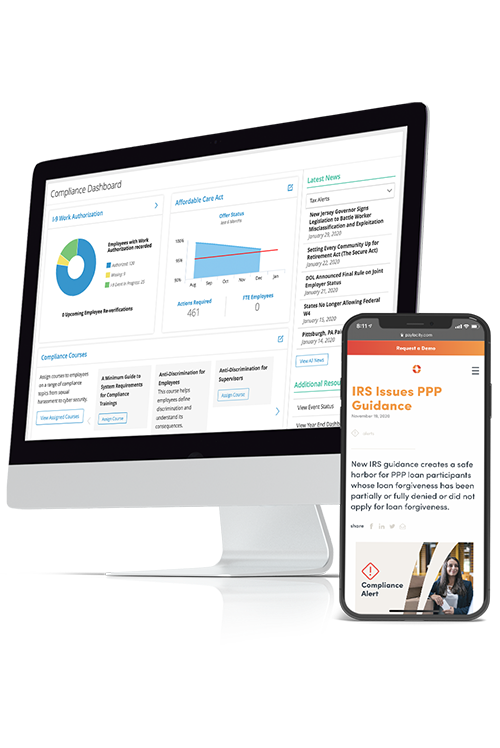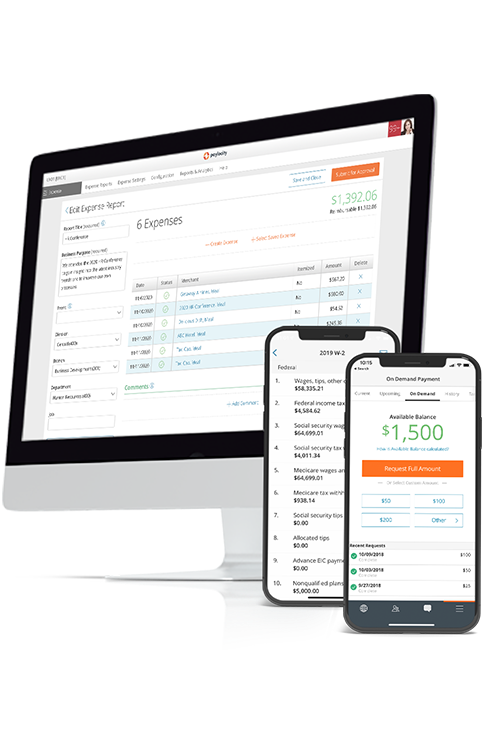What are the Benefits of Part-Time Work?
When implemented strategically, part-time positions can be a win-win for both workers and employers.
Employee Benefits
- Mental and physical wellness: Part-time work has been associated with a reduction in sick days as fewer working hours allow employees more time for self-care and mental well-being. This, in turn, leads to less burnout.
- Work-life balance: Part-time roles allow employees to set work hours around personal responsibilities, such as caregiving or education. Employees can pursue degrees, certifications, or passion projects while earning an income.
- Additional income: Part-time employees can take on multiple part-time roles to diversify their income sources.
- Career development: Part-time jobs sometimes lead to full-time positions, allowing employees to "test the waters" before committing to a role.
Employer Benefits
- Cost savings: Workforce management is more cost-effective with part-time employees since they’re only paid for the hours they work. Moreover, employers typically aren’t required to provide health insurance, retirement plans, or paid leave to employees who work less than 30 hours per week.
- Increased staffing: Employers can schedule part-time workers to support full-time staff during high-traffic periods or seasons.
- Access to a broader talent pool: Part-time roles appeal to skilled professionals with complicated schedules or commitments (e.g., parents, full-time students, artists, performers, etc.) who want (or need) more flexible lifestyles.
- Potential tax benefits: Some part-time employees may qualify your organization for a Work Opportunity Tax Credit (WOTC). WOTC applies to specific groups, including those who might be more inclined to work part-time jobs, such as students.
When to Hire Part-time vs. Full-Time
Not sure whether to hire part-time or full-time? Here are some key considerations to help you decide.
When To Hire Part-Time Workers
Experience fluctuating demand: If demand for labor fluctuates throughout the year (e.g., holidays or busy seasons), part-time workers can provide on-demand support. This is ideal for retailers, hospitality, food service, and tourism-related businesses.
Want to cut costs: Part-time workers can fill the gaps for growing businesses that aren’t ready for full-time employee costs (i.e., wages and benefits). This is ideal for startups, small businesses, and companies with limited cash flow.
You Need Specialization (on a Limited Basis): Sometimes, you don’t need a full-time expert — just someone with specific skills for a few hours a week. Part-time hiring is great for consultants, designers, or IT specialists who can contribute without the commitment of a full-time salary.
When to Hire Full-time Employees
- Long-term stability: If a role requires consistent, ongoing work and has little variability in demand, hire a full-time employee. Full-time staff are more likely to commit to the company, reducing turnover and ensuring operational continuity.
- Specialized talent: Some roles require specialized skills that are difficult to find on a part-time basis (e.g., software developers, engineers, HR professionals, and legal advisors).
- Team Cohesion: Full-time employees are likelier to engage in company culture, participate in team-building activities, and develop long-term relationships with coworkers.
FAQs About Employing Part-time Workers
Do Part-Time Workers Get Holiday Pay?
Federal labor laws, like the FLSA, don’t require employers to offer holiday pay (i.e., paid time off (PTO) for holidays) to part-time employees in the U.S.
Can Part-Time Workers Earn Paid Time Off?
Yes, but it depends on company policy, local labor laws, and the hours worked:
- Federal law: U.S. federal law doesn’t require PTO for part- or full-time employees.
- Company policy: Many employers offer prorated PTO for part-time workers. For instance, if a full-time employee earns 80 hours of PTO annually, a part-time worker working 20 hours per week may receive 40 hours of PTO.
- State/local laws: Certain states (like California, New York, and Washington) require employers to provide paid sick leave to all employees, including part-time workers.
Are Part-Time Workers Considered Contractors?
No, part-time employees and independent contractors are different. While contractors may work part-time for an employer, they’re usually not hired employees. Instead, they typically work for themselves while managing their own taxes, benefits, and assignments.
Part-time workers, on the other hand, are usually hired employees who often receive an offer letter or written agreement from their employer outlining various expectations (e.g., hours, pay, working conditions, etc.)
Do Part-Time Workers Get Sick Pay?
Part-time employees can receive sick pay, but it depends on state laws and the employer’s leave policy. For example, states like California, New York, Arizona, and Washington require all employees (including part-time) to accrue paid sick leave, while others don’t.
Do Part-Time Workers Get Overtime?
Yes, under federal law, part-time workers are entitled to overtime pay if they work more than 40 hours in a workweek.
FLSA requirements mandate all non-exempt employees (both part-time and full-time) to receive overtime pay at 1.5x their hourly rate for any hours worked over 40 a week.
How Long Is a Part-Time Shift?
A part-time shift typically ranges from two to eight hours, with most shifts averaging between four to six hours, depending on the industry, job role, and specific employer needs.
Manage Your Part-Time and Full-Time Staff with Paylocity
Part-time workers offer significant advantages to organizations. However, many businesses are reluctant to hire them due to the potential complexity.
Fortunately, the right payroll solution can simplify hiring, scheduling, and paying part-time employees — all while ensuring compliance. With Paylocity’s all-in-one HR and pPayroll platform, organizations can:
- Remain compliant: Create rules to comply with specific state and federal labor laws, such as overtime, breaks, and waivers. Define policies tailored to your company for attendance, schedules, and payroll.
- Schedule: Set parameters to ensure part-time employees work the correct number of hours and automatically account for any overtime.
- Track: With Paylocity’s time and attendance software, you can deploy alerts for schedule and time card errors, send notifications for shift reminders or when employees are approaching overtime.
Want to learn more? Request a demo of Paylocity today!





